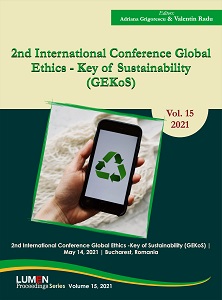Financial Inclusion in ASEAN Countries – A Gender Gap Perspective and Policy Prescriptions
Financial Inclusion in ASEAN Countries – A Gender Gap Perspective and Policy Prescriptions
Author(s): Lukman Raimi, Mirela Panait, Eglantina Hysa
Subject(s): Economy, Micro-Economics
Published by: Editura Lumen, Asociatia Lumen
Keywords: financial inclusion; ASEAN countries; gender gap; development; financial system;
Summary/Abstract: Financial inclusion is an increasingly intense issue that is of concern to the credit institutions and the public authorities. It has become topical and gained new value during this period of Covid-19 crisis. Although financial exclusion cuts across demographic categories, but certain categories of financial consumers such as women, young people, people with disabilities and those residing in rural areas have a low presence in the financial services sector. Previous studies attribute the incidence of financial exclusion of some segment of the society to low income, low level of financial education or difficult access to financial products and services generated by poor development of physical infrastructure. Is this true in the case of ASEAN region? A quantitative research approach was adopted in this study, while relying on the secondary data of the World Bank spanning 2011-2017, the UN Women ASEAN Gender Outlook report (2020 -2021), and enriched by scholarly works. The article focuses on the dimensions of the phenomenon of financial inclusion in ASEAN countries, with emphasis on the gender gap financial inclusion. The analysis of the extracted data reveals multiple differences among the countries in the region, a fact that can be explained by the different levels of financial technology development and the governmental interventions implemented to improve financial inclusion. On the strength of the findings, this paper argues that digitalization and financial innovation can also be solutions through which new consumers can be attracted to the financial system, but with these solutions come new challenges related to the protection of personal data and cyber security. For this reason, we believe that increasing financial inclusion must be approached at several levels and must involve joint efforts by public authorities, credit institutions and other categories of stakeholders.
Book: 2nd International Conference Global Ethics - Key of Sustainability (GEKoS)
- Page Range: 38-55
- Page Count: 18
- Publication Year: 2021
- Language: English
- Content File-PDF

